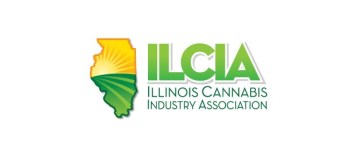Recreational cannabis is going to have some hurdles to jump before the retail sales begin on January 1st. The Cannabis Industry Association of Illinois, formerly known as the Medical Cannabis Alliance of Illinois, representing the cannabis cultivation centers and dispensaries who have made Illinois’ medical program a strong success, are currently working through the expansion to adult use around the state.
Larry O’Hern, of Nature’s Grace and Wellness based out of Vermont, Illinois who represents the West Central portion of the state on the Association says that group is working feverishly to meet the demands that are going to come.
“It’s a new program and we have a very ambitious timeline to meet of January 1, and our goal is to maintain the gold standard that the medical program has operated under, bringing high quality, regulated products to Illinois consumers.”
O’Hern says that consumers, legislators, and producers all must come to terms with reality with the market.
“I am a country boy and I equate this to passing an ethanol bill. If you were going to make ethanol, would you tell the consuming public that you can have ethanol ready by September 1, when you put a corn crop in the ground the 15th of April? This is the same with cannabis. The bill was not signed until June, and the industry has the capability to meet the current market demand, but we have to have time to scale up. We have to have time to grow the plant and process the products and get them distributed. January 1 is an extremely ambitious timeline, and I respect our legislators and our regulators immensely, but this is landmark legislation, and we have to have realistic goals.”
CBAI’s leadership is in close contact with the Pritzker administration, and according to a press release, are pleased with the cooperation they have been receiving. CBAI’s main concerns are rule-making authority at the local and state level that may need to be implemented prior to January 1st and changing demand for smokable products due to the new Tobacco 21 laws passed in June. O’Hern believes the timeline may be a bit too ambitious unless these problems are worked out sooner rather than later.




